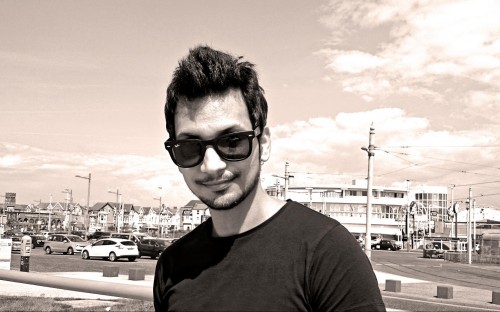Business schools will play a starring role in fostering the development of regional business hubs, and in helping entrepreneurs to launch ventures that can achieve growth and scale.
MBA students no longer see corporate careers as the only viable option. Graduates are increasingly setting up their own companies. “People want to do something ground-breaking and different,” says James Hickie, a lecturer in entrepreneurship at Manchester Business School.
“They want to take control of their own destinies. There is a profound cultural shift taking place in terms of people’s understanding and attitudes towards entrepreneurship.”
Universities’ firms have found much success, such as Horizon Discovery, a biotechnology group that that raised £68.6 million after listing this year on AIM, London’s junior stock market, and microchip designer ARM, which is listed on the Nasdaq and the LSE with a market cap of £13.3 billion, both products of Cambridge University.
As business schools pivot their learning to cater for start-up founders, the UK is evolving into a cluster of clusters of start-up hubs. Britain as a whole produced 581,173 new businesses last year, 60,000 more than in 2013.
Many of these are clustered in London but other regional cities such as Sheffield and Leeds are beginning to emerge, led by Birmingham which last year was home to 2,000 more start-ups than in 2013.
But there remain hurdles to overcome. Founders are under pressure to perform, access to capital is limited and many in the start-up community do not think MBA programs can generate “entrepreneurs”.
Below, BusinessBecause profiles three UK entrepreneurs, from the midlands to London, hoping to achieve start-up success, whom are all graduates of leading UK business schools.
Bounce
Peter Kovari, London Business School’s EMBA
Peter Kovari, CTO of Bounce, describes three common challenges that start-ups face: building a great team, setting priorities, and focusing on the task ahead.
“Defining and managing a product that our customers like and [are] willing to pay for is also a difficult task,” he says.
A digital disruptor by nature, Bounce is hoping to shake-up London’s taxi industry with smartphone technology. If this narrative sounds similar, that’s because you’ve heard it before: Uber, the controversial cab-hailing business that has taken the world by storm.
But Peter is confident his executive MBA, earned at London Business School, can add fire power to the company’s arsenal. “The MBA gives a lot of opportunities to learn useful skills [and] meet great people,” he says.
He adds: “Teachers, classmates and alumni are a great source of inspiration.”
His first venture was an internet start-up that he founded while at university, that he left to start a corporate career at IBM, but the company survives.
He knowns how difficult the current path will be but says “somehow you can always find hidden reserves [of] energy to manage” any situation.
His end goal for Bounce is a “healthy exit”. “The opportunity to do something meaningful, [to] work with exceptional people and [to] potentially build a valuable business, are all very good motivators,” Peter adds.
Door Ironmongery Ltd
Gaurav Singhal, Aston Business School’s MBA
Gaurav Singhal, CEO of Door Ironmongery Ltd, moved to the UK to expand his already bustling start-up empire. “Thanks to the advancement of today’s technology, I have designed everything in an automated way,” he says, freeing up time.
The company, launched in 2014, aims to become one of the leading suppliers of door furniture fittings in Britain.
The business model is based on establishing direct supply channels with end consumers by importing products directly from manufacturers, eliminating intermediaries.
“The range of products includes all types of door handles, doorknobs, hinges and front door fittings in various finish, designs, colours and materials,” says Gaurav.
He set up his first company, J P Hardware, which manufacturers and exports hardware, in 2007 in India and made profit of $600 on his first order. After passing it onto his father to manage, he launched Indware Ltd in 2010 in UK, which sells hand-forged traditional ironmongery products to UK wholesalers and retailers.
The ambitious founder enrolled in an MBA program at Aston Business School, based in Birmingham, to expand his “entrepreneurial” range of skills. “Aston provided a platform to think practically and globally,” he says.
Gaurav received funding of £1340 from the BSEEN program, which seeks to support start-up businesses that Aston students launch. “It works as the foundation for my business,” he says.
He is optimistic about the future: “I have no doubt that joining [the] MBA at ABS to polish my entrepreneurial skills was the correct decision… To achieve success with my businesses.”
FlatClub
Nitzan Yudan, London Business School’s MBA
Nitzan Yudan, CEO of FlatClub, is something of a serial entrepreneur. The company, not dissimilar to Airbnb in concept, is his third.
The founder is disrupting the flat rentals market with cheap stays, targeting students online. Nitzan hit on the idea while studying an MBA at London Business School, based a stone’s throw away from where FlatClub is based in Tech City, the UK’s answer to Silicon Valley.
“Without my MBA I wouldn’t have founded FlatClub. LBS provided me with the two most important factors for an early stage business – network and reputation,” he says.
In four years the company has grown significantly. He started with five flats to rent, operating through a portal for LBS students, and by the end of 2015 he says there will be 50,000 trading online.
The company has raised venture capital funding of $1.5 million from a group of investors, including at VC firms Coller Capital and InterCapital.
Nitzan describes the start-up’s biggest hurdle as recruiting talent: “As a start-up, we offer less money than corporates, ask [people] to work harder, provide less chance of success, and no time for being inefficient,” he says.
“Finding others who want to work in this environment and [who] can excel and take the business forward is a real challenge.”
RECAPTHA :
af
7b
67
15








